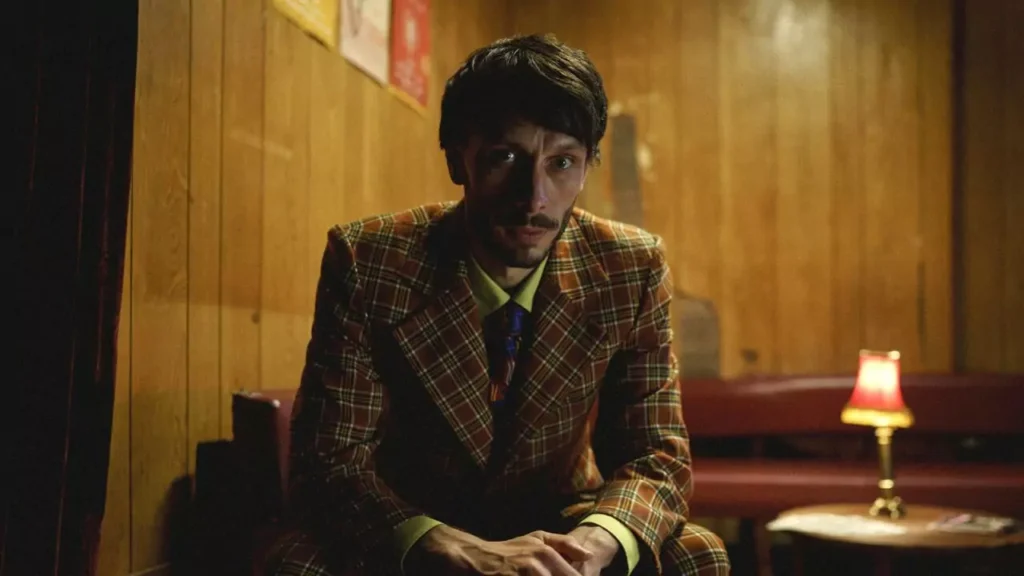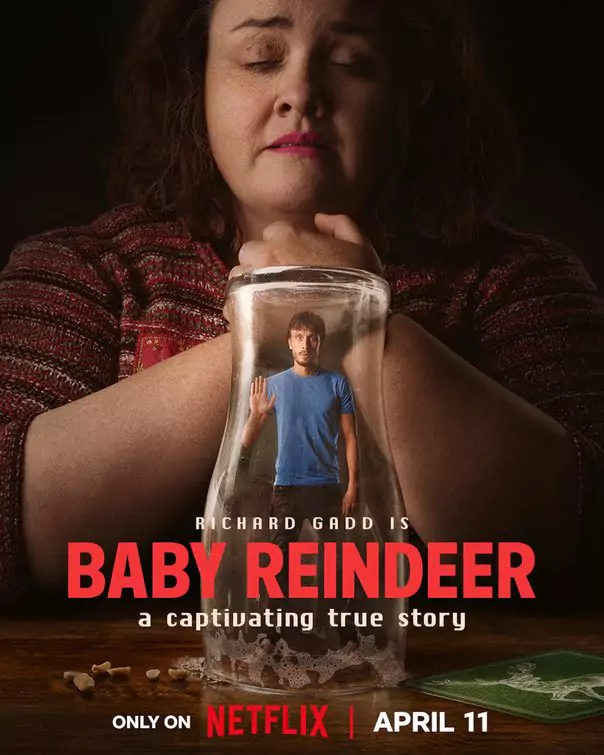Warning: Undefined array key "titleWrapper" in /home/u364374973/domains/theamericanvibe.com/public_html/wp-content/plugins/seo-by-rank-math/includes/modules/schema/blocks/toc/class-block-toc.php on line 103
Netflix’s “Baby Reindeer”: Real-Life Inspiration Considers Legal Action (Fiona Harvey, Defamation Lawsuit)
The latest season of Netflix’s dark comedy “Baby Reindeer” has sparked a real-life controversy. While viewers are engrossed in the show’s exploration of stalking and obsession, a woman named Fiona Harvey claims the series depicts a fictionalized version of her, raising questions about defamation and the ethics of portraying real-life experiences in fiction.
Table of Contents
The Inspiration Behind “Baby Reindeer”
Created by comedian Richard Gadd, “Baby Reindeer” centers around struggling comedian Donny Dunn (played by Gadd himself) and his unsettling relationship with a woman named Martha (played by Jessica Gunning). The show portrays Martha as an unhinged stalker who bombards Donny with emails, letters, and voicemails over several years. Gadd claims the series draws inspiration from his own experiences with a stalker.
Fiona Harvey Steps Forward
Following the show’s release, Fiona Harvey, a resident of London, took to social media to vehemently deny being the inspiration for Martha. She expressed frustration over online harassment and attempts by viewers to connect her to the character. Harvey distanced herself from the show, emphasizing she has never met or contacted Richard Gadd.
Defamation Concerns and Potential Lawsuit
Harvey’s public statements hint at a potential legal battle with Netflix. Defamation refers to the act of communicating a false statement that damages a person’s reputation. While the character of Martha is fictional, Harvey suggests the portrayal might be seen as defamatory if viewers believe it represents her.
However, pursuing a defamation lawsuit against a large corporation like Netflix is a complex and challenging process. Harvey would need to prove that the series makers intentionally portrayed a character demonstrably similar to her, causing reputational harm.

Online Harassment and Public Scrutiny
Harvey’s social media posts indicate she has faced online harassment since the show’s premiere. Viewers, believing the character to be based on her, have allegedly sent her abusive messages. This situation highlights the potential negative impact of fictional portrayals on the privacy of individuals, even if their names are not used.
The Show’s Impact and the Blurring of Lines
The “Baby Reindeer” controversy raises questions about the ethics of fictionalizing real-life experiences, especially when potentially identifiable details are included. While creative freedom allows artists to draw inspiration from reality, the line between fiction and perceived truth can become blurry, leading to unintended consequences.
Where Do We Go From Here?
The future of this situation remains uncertain. Harvey may choose to pursue legal action, prompting a response from Netflix. Alternatively, the controversy might die down, or the parties involved could reach a resolution outside of court. It’s important to follow developments as they unfold.
Digging Deeper: Unpacking the “Baby Reindeer” Controversy
The core of the “Baby Reindeer” controversy lies in the potential for defamation. Here’s a closer look at the legal aspects and the challenges Harvey might face:
- Similarities Between Character and Reality: To win a defamation case, Harvey’s lawyers would need to establish that the character of Martha bears a significant resemblance to her. This could involve analyzing details in the show, such as profession, age, location, or any specific behavior mentioned.
- Proving Malice: Another hurdle is proving “malice” on the part of Netflix or the show’s creators. This means demonstrating that the portrayal was intentional and aimed at damaging Harvey’s reputation.

Alternative Considerations
Beyond a lawsuit, other possibilities exist:
- Right of Reply: In some countries, individuals have the “right of reply” allowing them to publicly respond to negative portrayals, potentially mitigating damage. Harvey could explore this option if available.
- Out-of-Court Settlement: Reaching a settlement with Netflix could offer a faster resolution without the complexities of a lawsuit. However, the terms of such a settlement would likely remain confidential.
The Show’s Defense
It’s important to consider Netflix’s potential defense strategies:
- First Amendment Protection: The creators might argue that “Baby Reindeer” is a work of fiction protected by freedom of speech under the First Amendment (US) or similar laws in other countries.
- Composite Character: Netflix could claim Martha is a composite character, drawing inspiration from various experiences, not solely Fiona Harvey.
The Court of Public Opinion
While legal battles play out in courtrooms, the court of public opinion also holds significant power. The media coverage of this controversy could significantly impact public perception of both Harvey and the show.
- Impact on Harvey: Negative media attention, even without a formal conviction, could damage Harvey’s personal and professional life.
- Impact on “Baby Reindeer”: The controversy could generate negative publicity for the show, potentially affecting viewership and future seasons.
Looking Forward
The future trajectory of the “Baby Reindeer” controversy remains uncertain. Here’s what to watch for:
- Legal Action: If Harvey files a lawsuit, the legal proceedings could take months or even years to resolve.
- Public Response: The show’s creators or Netflix might issue a public statement addressing the controversy.
- Industry Discussion: This situation might spark broader discussions within the entertainment industry regarding ethical considerations when portraying potentially identifiable experiences in fictional narratives.
Conclusion
The “Baby Reindeer” controversy raises significant questions about the intersection of creative freedom, defamation, and the right to privacy. As the story unfolds, it will be fascinating to see how legal issues are navigated, how public perception evolves, and what lessons are learned for the future of storytelling and its impact on real people.
Also Read
- Ivan F. Boesky, Rogue Trader in 1980s Wall Street Scandal, Dies at 87
- With JPMorgan, Mastercard on board in biometric ‘breakthrough’ year, you may soon start paying with your face
- Cargo Ship That Crashed Into Baltimore Bridge Moves Back to Port
- James Greenfield, Globe-Trotting Reporter and Times Editor, Dies at 99
- Spurs fly to Australia hours after final PL game
Popular Category
Trending Stories